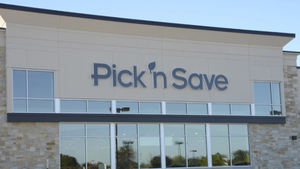CBA Raises Its Call for Supply-Chain Reforms With New Policy Platform
Deliver America seeks expanded public-private partnerships, tax incentives for U.S. manufacturing. Federal government "must take action to end its uncoordinated and outdated approach to supply-chain policy and let some steam out of the engine," Consumer Brands Association President and CEO Geoff Freeman says.

The Consumer Brands Association (CBA) reiterated its call for a federal office of supply chain in a new platform that the group hopes will nudge lawmakers toward what it deems overdue supply-chain policy reforms and investments in domestic manufacturing and transportation.
"Our government must take action to end its uncoordinated and outdated approach to supply-chain policy and let some steam out of the engine," said Geoff Freeman, president and CEO of the CPG trade group, in a news release about the Deliver America policy platform.
Last week, following the release of the Bureau of Labor Statistics' monthly consumer price index (CPI) and producer price index (PPI) reports showing a continued surge in prices in June for consumers and wholesalers alike, Freeman sounded a similar call for action: "There are policy challenges that have been with us far longer than inflation that could ease some of the pressure we're contending with," he said. "There can be no more important moment to consider them."
Among the changes the CBA seeks are creation of an interagency office of supply chain (such an office is included in President Joe Biden's proposed infrastructure plan, with requested funding of $50 billion); targeted visa reforms to help ease companies' labor woes; new tax incentives to promote U.S. manufacturing; and fast-tracking deployment of autonomous vehicles, drones and other emerging technologies.
See also: White House Creates Supply-Chain Disruption Task Force
Fortifying manufacturers', logistics companies' and other supply-chain players' talent pipelines and modernizing infrastructure-management systems to ease freight bottlenecks at ports and on roads must be top priorities to ensure American competitiveness, the CBA said. Expansion of public-private partnerships, the group added, can help speed innovation and meaningful supply-chain change.
"Despite how COVID-19 has clarified their critical nature, America’s supply chains rarely receive attention in Washington or state capitals across the country—imperiling the availability, affordability and accessibility of household necessities," the CBA states in the Deliver America policy platform. "When they do receive attention, the federal government’s approach is often uncoordinated, siloed and haphazard. ... All stakeholders—public, private and nonprofit—must come together to develop a national strategy to strengthen resilience, competitiveness, preparedness and sustainability in the nation's supply chains."
About the Author
You May Also Like






